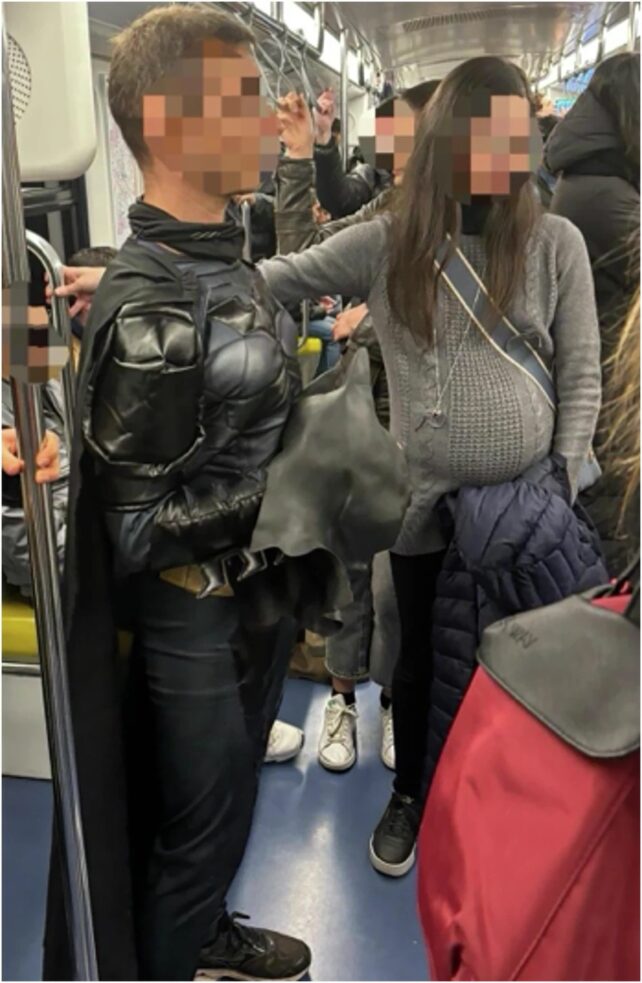A new study has found that people are more likely to act kind towards others when Batman is present – and not for the reasons you might assume.
It may sound like a full-throated attempt to score an Ig Nobel Prize, but the study is actually an intriguing exploration of what inspires people towards prosocial behavior.
Psychologists from the Catholic University of the Sacred Heart in Italy conducted experiments on the Milan metro to see who, if anyone, might offer their seat to a pregnant passenger.
Related: Psychologists Watched 150 Episodes of Bluey. Here's What They Learned.
The kicker? Sometimes Batman was there – or at least, another experimenter dressed as him. The researchers were checking if people were more likely to give up their seat in the presence of the caped crusader.
And sure enough, there did seem to be a correlation. In 138 different experiments, somebody offered their seat to an experimenter wearing a hidden prosthetic belly 67.21 percent of the time in the presence of Batman.
That's a lot more often than times the superhero wasn't around – in those cases, a passenger offered a seat just 37.66 percent of the time.
To make sure people didn't realize Batman and the pregnant passenger were in cahoots, they entered the train from different doors, stood at least a few meters apart, and never interacted during the experiments.

So why would seeing Batman make people be nicer to each other? It turns out that it's probably not from fear of looking like a bad guy in front of a guy famous for beating up villains.
"When inquired about the reason for the prosocial gesture, most of the responses in the two conditions referred to the importance of recognizing pregnancy, with some directly referring to social norms, education, or safety," the researchers write in their paper.
"Interestingly, among those who left their spot in the experimental condition, nobody directly associated their gesture with the presence of Batman, and 14 (43.75 percent) reported that they did not see Batman at all."
Instead, the team hypothesizes, it might just be that seeing something unexpected around you makes you more self-aware, and thus more likely to notice someone else in need.
Say, for example, you're zoning out to a podcast on your morning commute: you're probably not paying much attention to your fellow passengers. But someone getting on the train dressed as Batman is likely to catch your eye – and suddenly you also notice a pregnant passenger who might need a seat more than you do.
This might happen subconsciously, which is why nobody directly tied their philanthropy to the presence of the Dark Knight. Those who reported not noticing Batman at all are a little harder to explain, but the team says that they might instead have noticed the kerfuffle Batman caused among other passengers.
However, increased awareness of their surroundings isn't the only potential explanation, the team says.
"It is also possible that the superhero figure enhanced the relevance of cultural values, gender roles, and norms of chivalrous helping, consistent with research on the 'priming' effect related to superheroes: the figure of Batman could, in other words, play a prosocial priming role," says Francesco Pagnini, psychologist at UniCatt.
To find out for sure, the researchers suggest running similar experiments with different characters to see if the phenomenon is unique to Batman. Would people still increase their altruism in the presence of, say, Darth Vader, who's not exactly known for his prosocial behavior?
The research was published in the journal npj Mental Health Research.

